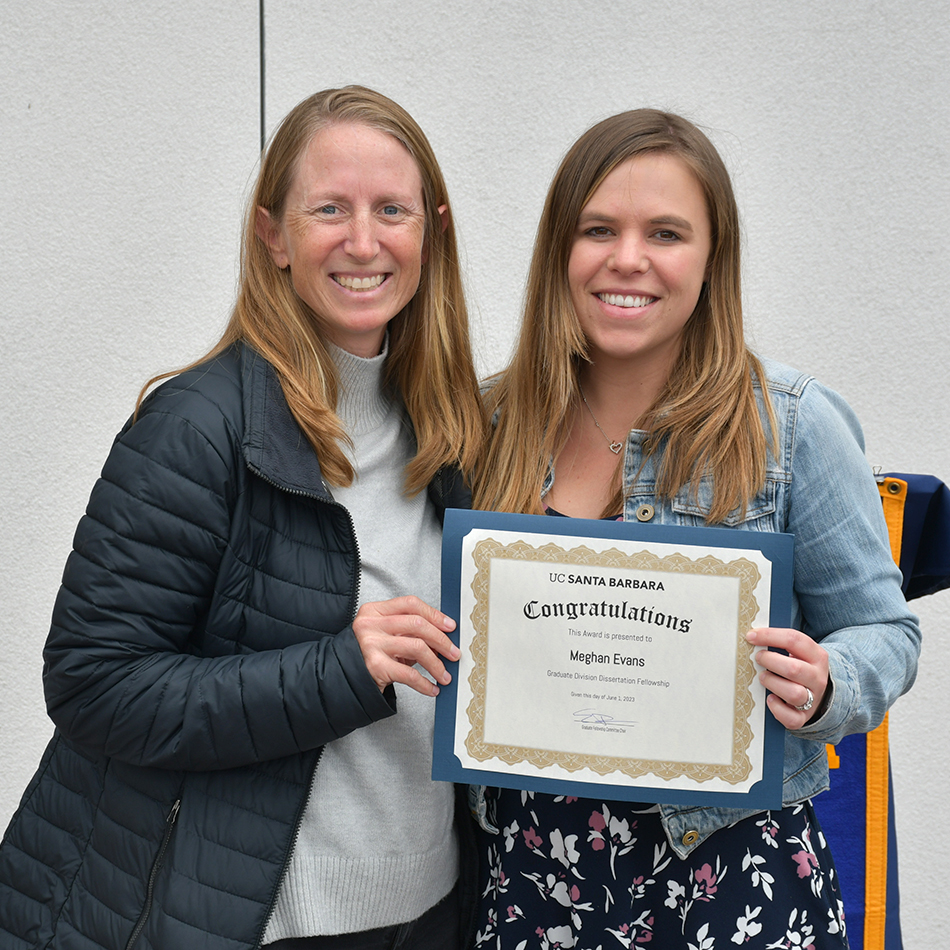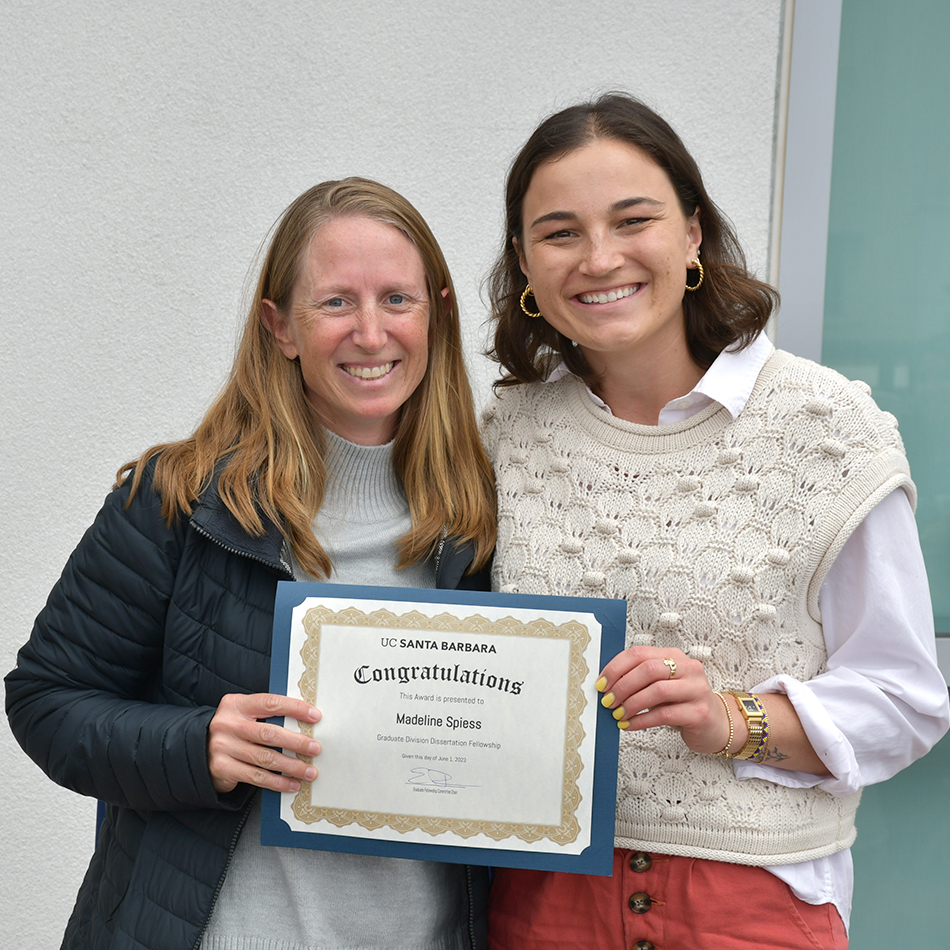Meghan Evans and Madeline Spiess, both students in the Department of Counseling, Clinical, and School Psychology, have been awarded the 2023-24 Graduate Division Dissertation Fellowships for continuing students. The Graduate Division Dissertation Fellowships support doctoral students who have advanced to degree candidacy and are in the final stages of completing their dissertation. The fellowships seek to enable awardees to focus solely on writing their dissertations by mitigating financial stressors and thereby relieving awardees from TA or non-academic employment obligations.
Meghan Evans is a doctoral student in Clinical Psychology working under Dr. Maryam Kia-Keating. After receiving her B.S. in Psychology with minors in Public Health Science and Religious Studies from Santa Clara University, Meghan worked as a senior lab manager and post-baccalaureate research associate focused on the relationship between trauma, adverse childhood experiences (ACEs), mental health, and other social determinants of health (i.e. community violence, discrimination, housing instability, mass incarceration). Her current research interests include mixed-methodology, community-based participatory methods, social determinants of health, and reducing racial, ethnic, and socioeconomic disparities in culturally-sensitive, strengths-based trauma interventions.
Madeline Spiess is a doctoral student with an emphasis in School Psychology working with Dr. Erin Dowdy. After receiving her B.A. in Psychology from University of San Francisco, she worked at UCSF within the Hyperactivity, Attention, and Learning Problems (HALP) Clinic. For two years, Madeline was the lead project coordinator for the Collaborative Life Skills Program, a school-home intervention focused on behavioral parent training, child skill building, as well as teacher consultation and professional development. Her current research interests include exploring contextual and interpersonal factors that contribute to enhanced relationships, well-being, and efficacy among educators and students. She also works on surrounding transformative social-emotional learning, intentional school climate initiatives, and parent-child interaction therapy (PCIT). Within her research and intervention work, Madeline emphasizes the power of relationships, leveraging these connections to support intentional approaches that lead to lasting change at individual, community, and system levels.

